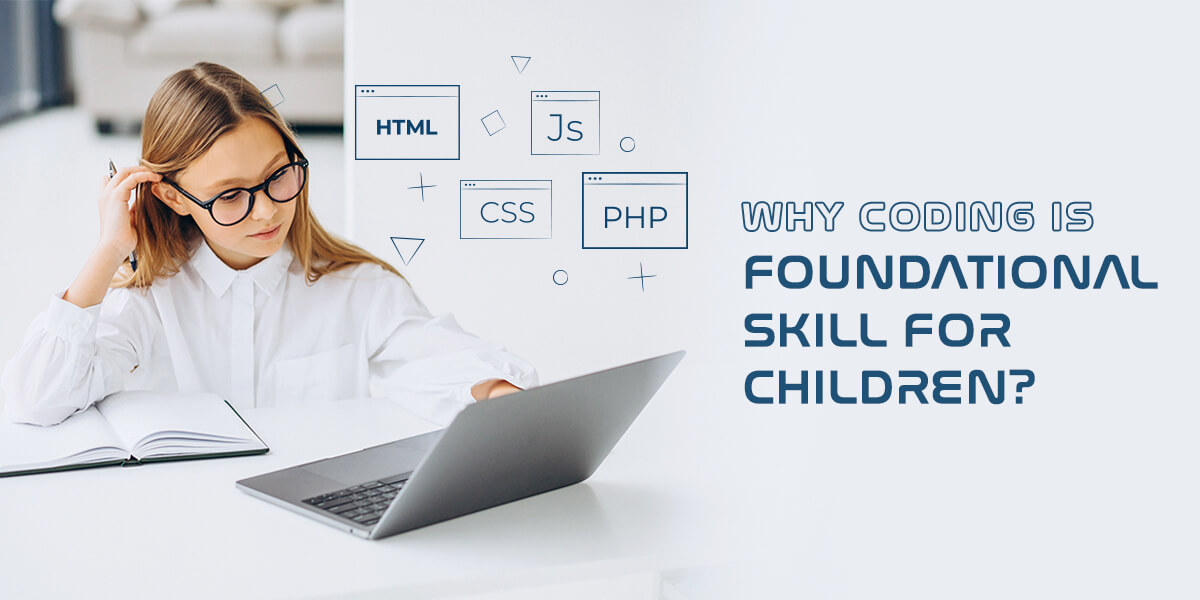In today’s digital and tech-savvy world, it is indispensable for children to learn to code. Coding is a basic foundational skill for children in the digital age. Coding for kids is just like reading and writing. What differs is, in coding, they learn how to read and write computer codes instead of long paragraphs of stories and lessons.
The coding skills that children need to learn are extremely flexible, versatile across diverse careers and subjects. Coding for beginners helps them learn problem-solving, critical thinking, logical reasoning, creativity, and planning. When children learn to code, it also promotes development of soft skills such as perseverance, communication skills, and determination.
Did you know?
- Coding is a foundational skill for children.
- 90 percent of US parents want their children to learn coding skills.
- Computer Science is taught only by 45 percent of high schools in the United States.
Bridging the coding gap that exists between parents and schools
- There is a huge gap that exists between the demand of parents for their children to learn to code and existing schools teaching Computer Science as a part of their curriculum.
- For children to unleash their inner creativity and for them to learn to code, it is important to bridge this gap by making coding a part of the school learning curriculum right from preschool.
- The basics of coding need to be taught to children as early as 5 – 6 years.
- At a young age, children should be introduced to simple block coding activities, so that they get to know how coding works.
Benefits of coding for children
Here are some of the reasons why children need to learn to code.
Learn to code for problem solving
- Coding is related to solving complex problems and breaking them down into small and easy parts for analysis.
- Kids learn to approach every problem differently and solve them using logical reasoning and computational thinking.
- Logical reasoning is something that will help kids not just in coding, but in real-world problems as well.
Learn to code for communication skills
- Be it school, work, or life, communication skills have to be applied everywhere.
- When children learn to code, they also learn how to effectively communicate with computers.
- It is a fact that computers can only understand complex ideas if they are broken down into logical steps, and arranged in the right sequence for them to comprehend.
Learn to code for improving academic skills
- The basics of coding help improve the academic skills of kids in areas such as math, problem-solving, and planning.
- Coding skills will help them strengthen their academic skills as well, thus helping them to perform better in academics.
Learn to code for nurturing creativity
- With coding, a child’s world is infinite and not bound by any boundary.
- There is an infinite world in front of the kids, without any limitations and restrictions in imagination and creativity.
- Coding helps children to be curious thinkers right from a tender age.
- When children learn to code, they explore, experiment, make mistakes, fail, and learn from their mistakes and failures.
Coding is similar to learning a new language. Learning coding skills is easy at a young age. In the last few years, several schools across the globe have made coding an integral part of the curriculum along with reading, writing, and math.
Also, computer science has been incorporated into the K-12 learning curriculum. Computer science provides kids the knowledge to enter the computer science field. It also helps in teaching the kids foundational (basic) skills such as logical thinking, and problem-solving approach. The coding skills will not only help learners in writing the code, but also in solving their day-to-day challenges.
For kids to be future ready, they need to learn to code right from the time they start school. They would be able to grasp the basics of coding from a young age.

